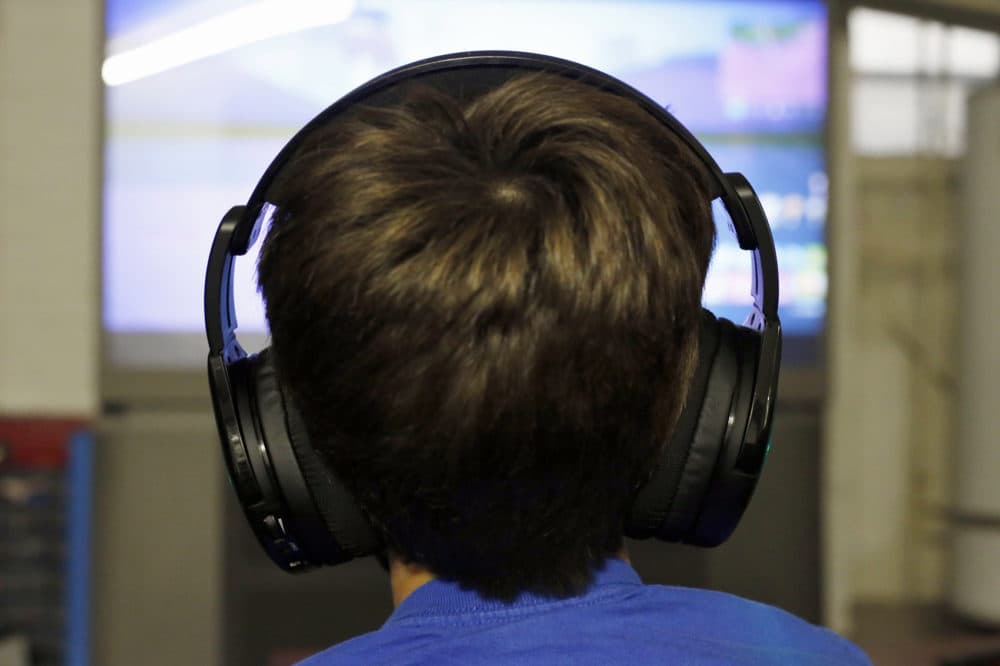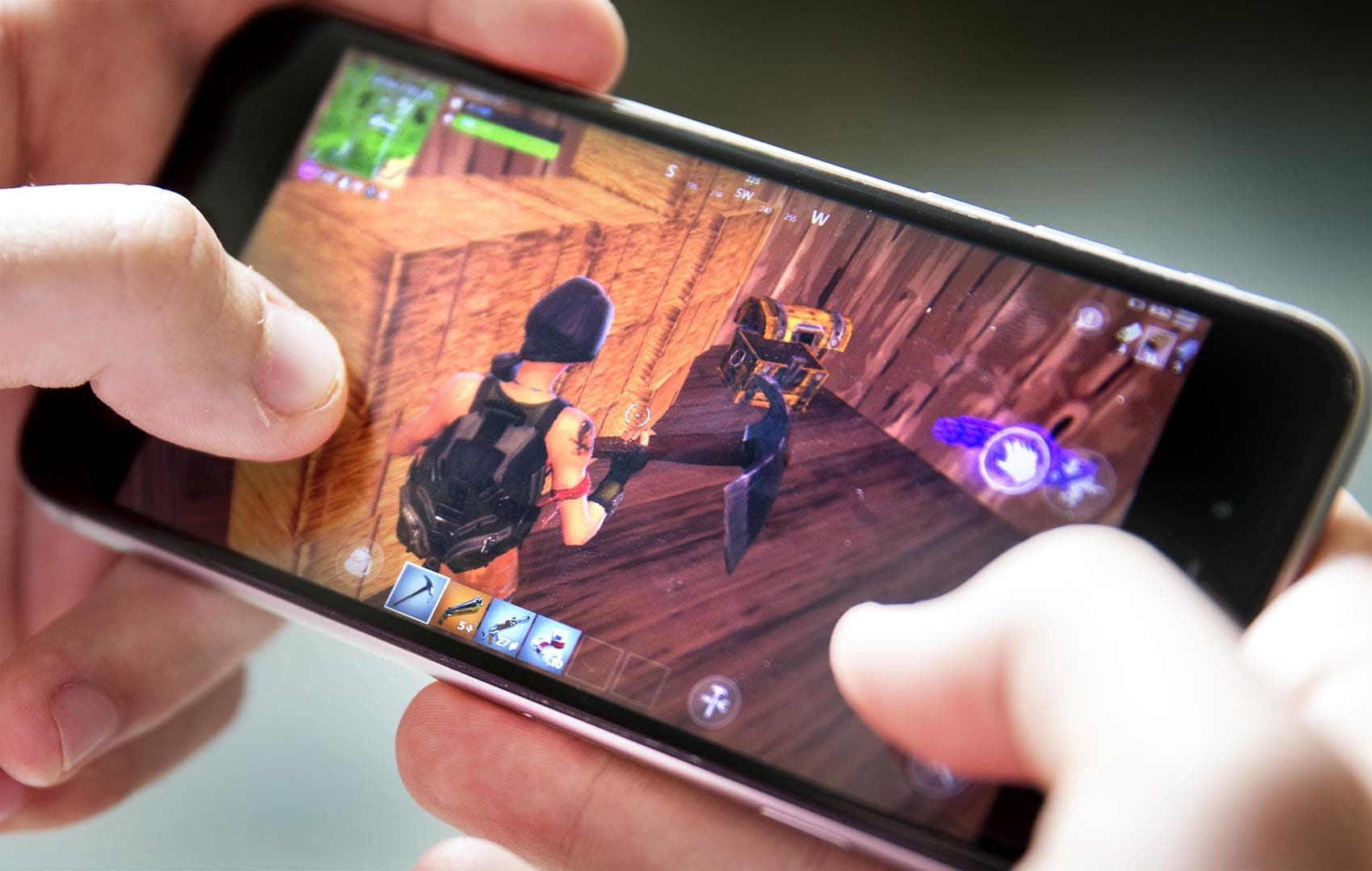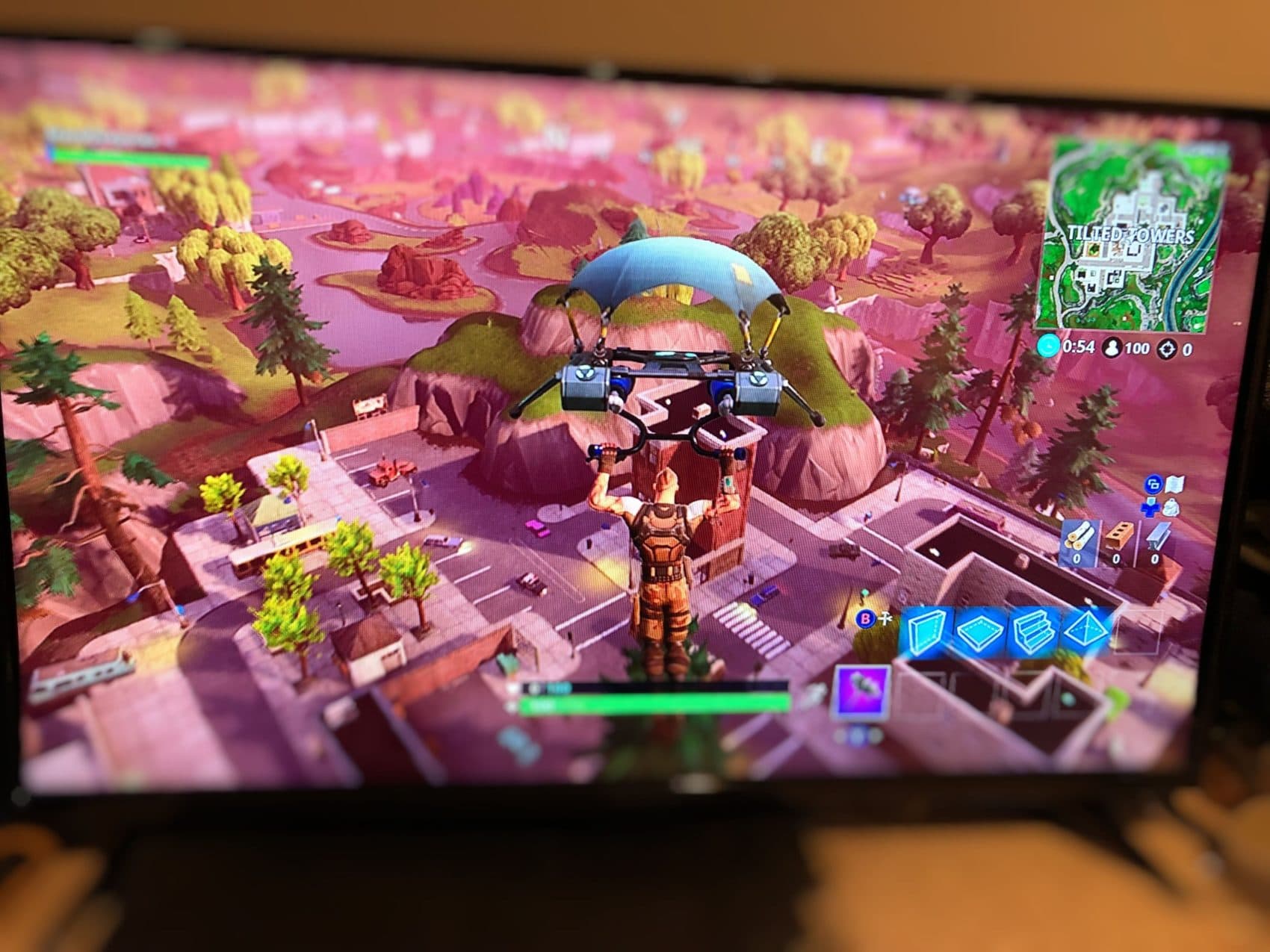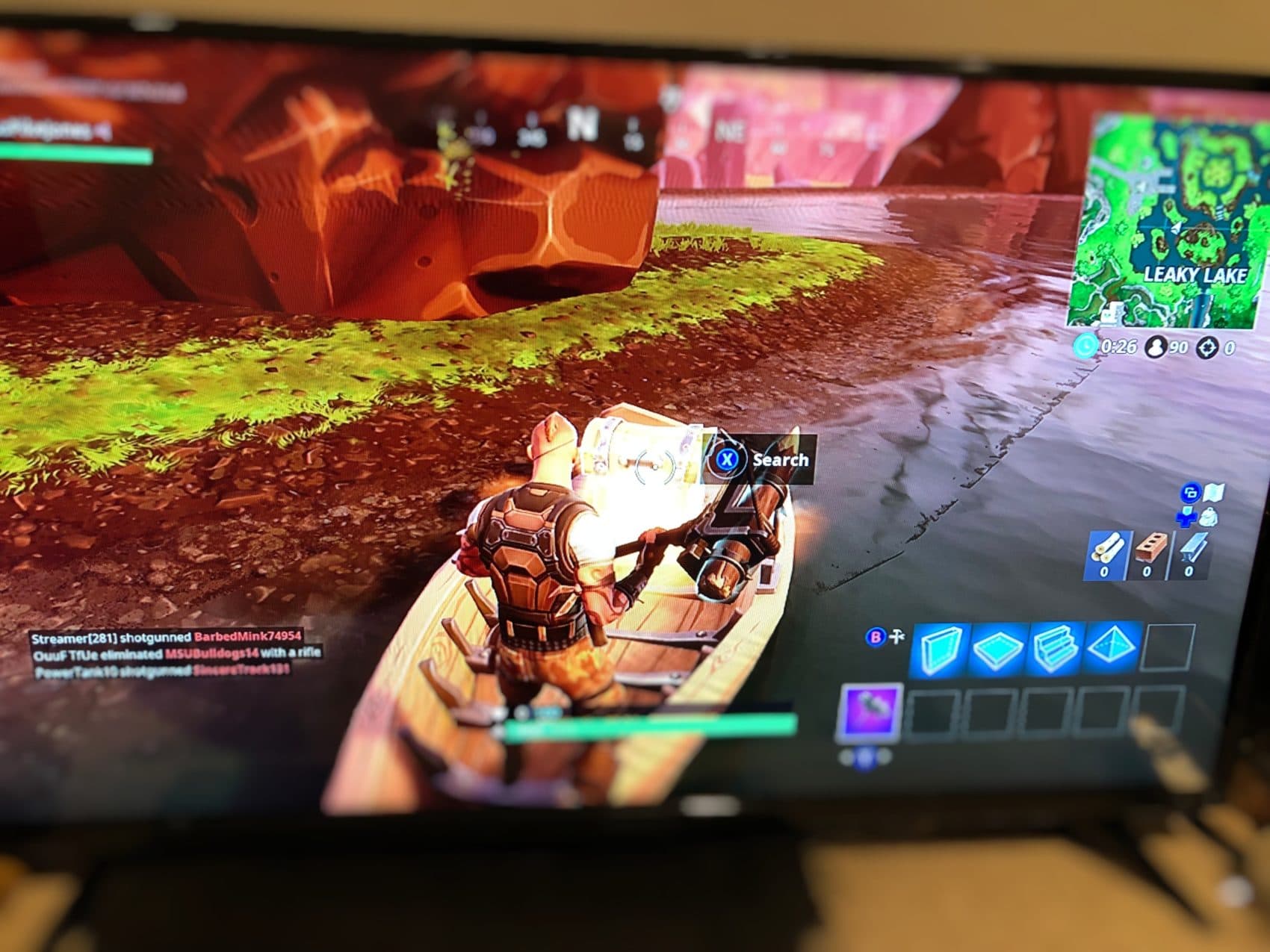Advertisement
'Fortnite' Reaches New Level Of Video Game Popularity — And Addiction
Resume
With Jane Clayson
"Fortnite" — some call the popular video game addictive. It's got everyone from kids to professional athletes hooked.

Guests
Chris Palmeri, LA bureau chief for Bloomberg News. (@chrispalmeri)
Nir Eyal, author, tech blogger and "behavioral designer." Author of "Hooked: How to Build Habit-Forming Products." (@nireyal)
Sarah Domoff, clinical child psychologist and psychology professor at Central Michigan University. She directs the Family Health Lab, a training clinic that seeks to promote healthy media use in adolescents. (@sarah_domoff)
Eric Klopfer, professor of comparative media studies and director of the Education Arcade at MIT, a group dedicated to the research and development of education video games. (@eklopfer)
So, Your Child Is Addicted To 'Fortnite' ... Here's What You Can Do
If you’re having trouble getting your kid to the dinner table because they’re playing 'Fortnite,' you’re not alone. Over 200 million gamers have registered for the video game worldwide.
And it’s not just kids — parents, Major League Baseball players, even the popular rapper Drake have all caught on. It’s fun and popular, but some say also addictive.
Here's how to start evaluating and curbing that addiction.
"What I try to do at my clinic and in my research is try to help prevent children engaging in different video game play or other types of screen media use, prevent later problems related to such use and creating a balance," Sarah Domoff says. "For a lot of these different mediums, we cannot completely avoid them. What's really imperative is to set limits early on, help children learn how to regulate their use, but then really be involved, set guidelines around use. If problems appear to arise, prevent future issues by checking to see, is my child only playing video games to the exclusion of other activities?"
"We talked about scheduling time," Nir Eyal says. "If you don't plan your day, somebody's going to plan it for you. Removing external triggers. I think a big mistake that parents make is having technology in kids' rooms. They don't need to have the technology in the room. Keep it outside in a more family-focused place. And then prevent distraction with the technology. Your iPhone today comes with a functionality called 'Screen Time' where you can set limits around how long kids have access to certain apps, so then it's not you telling them to get off the device, it's the phone.
"And then finally, for some folks, there are underlying issues: a lack of autonomy, confidence, connectedness, and for those type of things we need to dig deeper to figure out what we're really trying to escape with these devices."
Here are some stories about "Fortnite" we heard from listeners:
"My husband and I are avid gamers, and both of our children participate in various video games, social media platforms, etc.," Courtney, from Harrison Township, Michigan, says. "My comment relates to parental responsibility. While my children are allowed to participate in video games and other online platforms, they do so in a limited fashion — an hour, maybe two. We do that because they're involved with other things and they have other responsibilities. They have homework, they have chores, they have basketball, they have soccer, they have Girl Scouts."
"I'm actually ranked in the top 100 for North American players for a competitor of 'Fortnite,' so I play a lot of these games, but I'm an older male — I'm in my 30s," Ryan, from Fort Lauderdale, Florida, says. "A lot these games — I mean, my worry is they get kids addicted through chemical reactions. If you go through a 40-minute game with 100 people, and you're one of the last five people, your heart is beating so fast, when you actually win, they crave that rush. And that's what they're going back for."
"I have an interesting point of view from a child, myself," says 10-year-old Caleb from Salem, Massachusetts. "I am a 10-year-old child. I do play 'Fornite,' just not all the time. I play maybe once every week, maybe for an hour or so. I think 'Fortnite' should be encouraged, but not a lot. I think there should be a certain amount of time that kids should be able to play. I prefer to just use my imagination or something like that. I love toying around, stuff like that."
From The Reading List
Bloomberg: "Fortnite Addiction Is Forcing Kids Into Video-Game Rehab" — "Debbie Vitany is fighting a losing battle against Fortnite.
"Her 17-year-old son, Carson, has been logging 12 hours a day on the video game, searching for weapons and resources in a post-apocalyptic world where the goal is being the last person standing. Teachers complain he falls asleep in class and his grades have plummeted.
"'We’d made some progress in getting him to cut down his Fortnite hours and get better sleep, but he’s slipped back into his old habits,' Vitany, who lives near Saginaw, Michigan, said in an interview. 'I’ve never seen a game that has such control over kids’ minds.'
"Vitany’s anguish is echoed by an army of other parents, teachers and bosses around the world grappling with a game that sucks up hours of players’ time — sometimes to the detriment of other activities. More than 200 million people have registered to play Fortnite, which has become a billion-dollar business for its creator, Epic Games Inc. Some desperate parents have sent their kids to rehab."

WBUR: "How 'Fortnite' Hooks Your Kid, And Why Experts Say You May Not Need To Worry" — "A Boston-area couple recently sent a desperate email to two dozen fellow parents, seeking 'advice, sympathy---anything, really' to help with their teenager’s 'Fortnite' habit. After they decided to impose a screen time limit, the angry teen declared they had “ruined not only his social life, but his very life itself.”
"Dr. Jonathan Winickoff, a pediatrician at Massachusetts General Hospital for Children, reports recently helping a family 'make an action plan for one teen who was so addicted that it was interfering with schoolwork, sleep and life goals.' They took advantage of 'a natural break during a family vacation this summer,' he says, and the teen was 'contracted to not restart when he returns home.'
"I’m no stranger to 'Fortnite' binges myself. Slouched on my couch, headset on and controller in hand, I’ve spent countless late nights gunning for the No. 1 spot (a 'Victory Royale!') by myself or with friends. Admittedly, I stink at the game. But even as a 25-year-old noob, I often have trouble getting myself to turn it off.
"'Fortnite: Battle Royale,' a multiplayer, last-man-standing shooter, is the hottest game of the year, expected to rake in $2 billion by the end of the year. It can be played for free on every console and screen, from Xbox to iPhone. Although rated 'T for Teen' in the United States, it’s no secret that many of the game's more than 125 million players are kids — and that many have a hard time stopping."

The New Economy: "How Fortnite became the most successful free-to-play game ever" — "What do you get when you combine 'Minecraft' with 'Call of Duty,' and then add vital elements from 'PlayerUnknown’s Battlegrounds (PUBG)'? The biggest video game on the planet right now. 'Fortnite' is a battle-royale-style multiplayer, filled with cartoonish characters and played across numerous platforms. It’s colourful, fun, easy to play, hard to master and enjoyable to spectate.
"Released in September 2017, the current version of the game sees 100 players parachuted onto an island where they fight to survive, building forts and collecting weapons to bolster their position. According to SuperData, 'Fortnite' made over $1.2bn in its first 10 months of operation – an extraordinary feat, especially for a game that is free to download.
"With more than 125 million players around the world, 'Fortnite’s' fan base is both colossal and incredibly varied. It has grabbed headlines and been obsessed over. In other words, there’s a buzz around 'Fortnite' that puts it in a league of its own."
This article was originally published on December 04, 2018.
This program aired on December 4, 2018.